Aayushee Gupta
An Inference Approach To Question Answering Over Knowledge Graphs
Dec 21, 2021
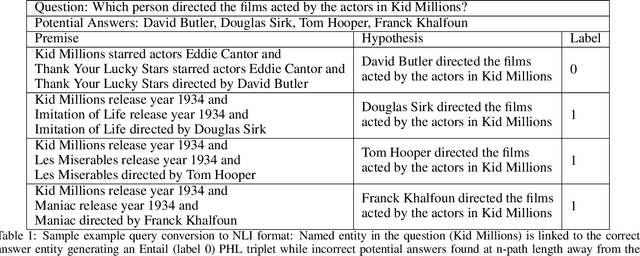
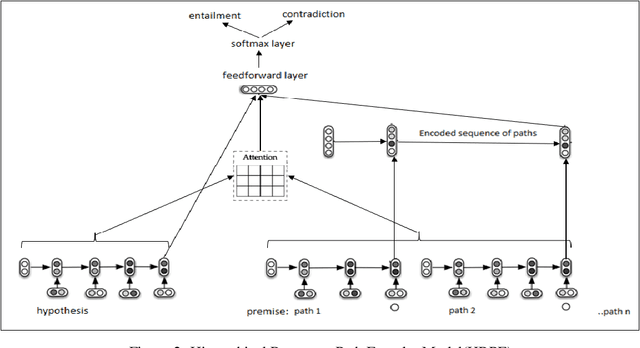
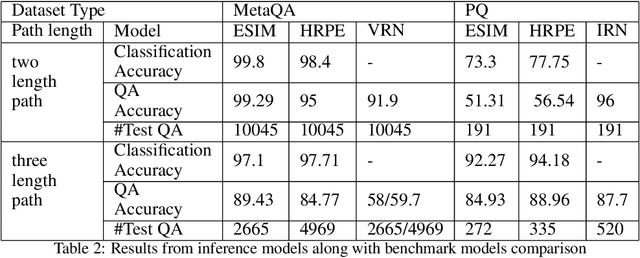
Abstract:Knowledge Graphs (KG) act as a great tool for holding distilled information from large natural language text corpora. The problem of natural language querying over knowledge graphs is essential for the human consumption of this information. This problem is typically addressed by converting the natural language query to a structured query and then firing the structured query on the KG. Direct answering models over knowledge graphs in literature are very few. The query conversion models and direct models both require specific training data pertaining to the domain of the knowledge graph. In this work, we convert the problem of natural language querying over knowledge graphs to an inference problem over premise-hypothesis pairs. Using trained deep learning models for the converted proxy inferencing problem, we provide the solution for the original natural language querying problem. Our method achieves over 90% accuracy on MetaQA dataset, beating the existing state-of-the-art. We also propose a model for inferencing called Hierarchical Recurrent Path Encoder(HRPE). The inferencing models can be fine-tuned to be used across domains with less training data. Our approach does not require large domain-specific training data for querying on new knowledge graphs from different domains.
A Machine Learning Approach to Quantitative Prosopography
Jan 30, 2018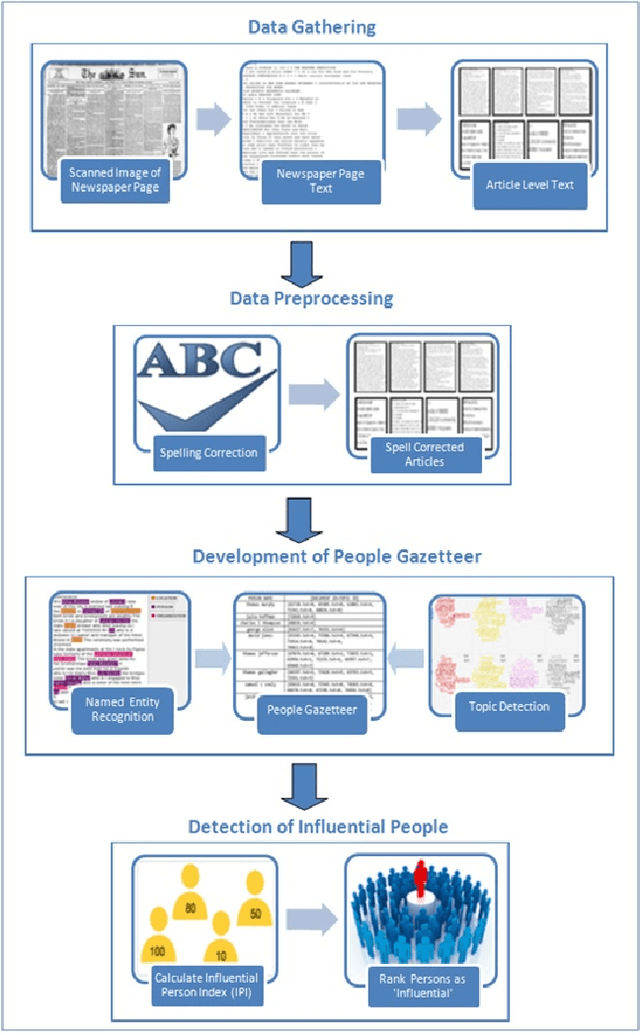

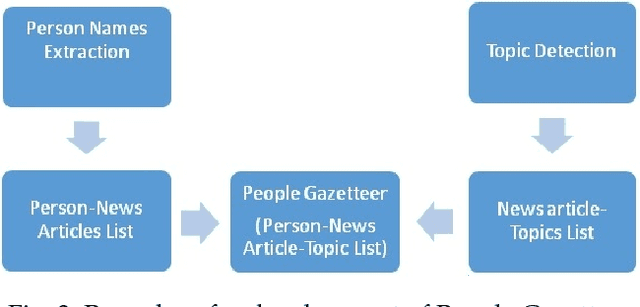
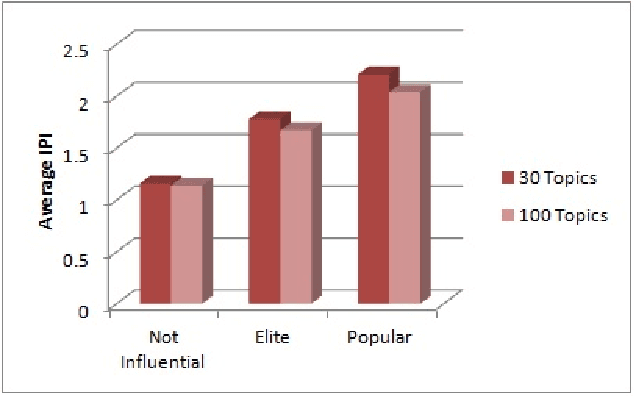
Abstract:Prosopography is an investigation of the common characteristics of a group of people in history, by a collective study of their lives. It involves a study of biographies to solve historical problems. If such biographies are unavailable, surviving documents and secondary biographical data are used. Quantitative prosopography involves analysis of information from a wide variety of sources about "ordinary people". In this paper, we present a machine learning framework for automatically designing a people gazetteer which forms the basis of quantitative prosopographical research. The gazetteer is learnt from the noisy text of newspapers using a Named Entity Recognizer (NER). It is capable of identifying influential people from it by making use of a custom designed Influential Person Index (IPI). Our corpus comprises of 14020 articles from a local newspaper, "The Sun", published from New York in 1896. Some influential people identified by our algorithm include Captain Donald Hankey (an English soldier), Dame Nellie Melba (an Australian operatic soprano), Hugh Allan (a Canadian shipping magnate) and Sir Hugh John McDonald (the first Prime Minister of Canada).
 Add to Chrome
Add to Chrome Add to Firefox
Add to Firefox Add to Edge
Add to Edge